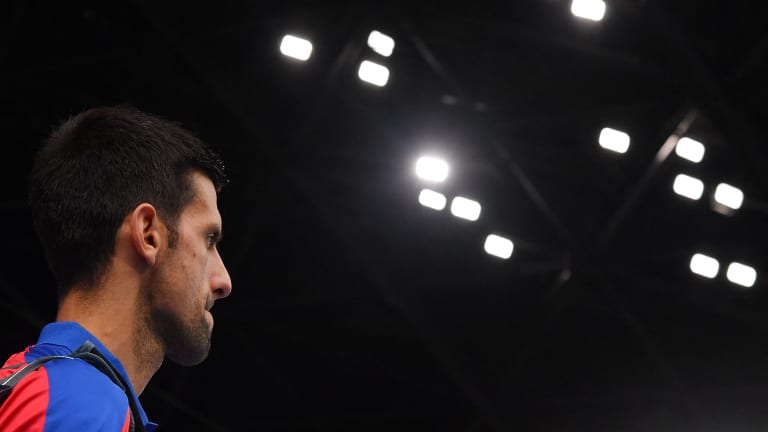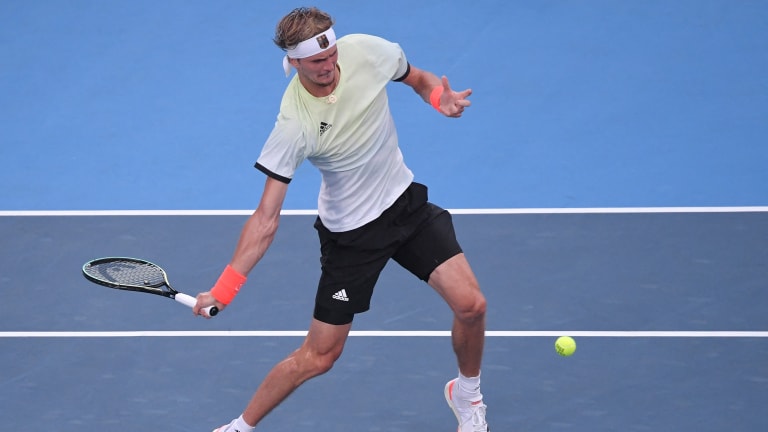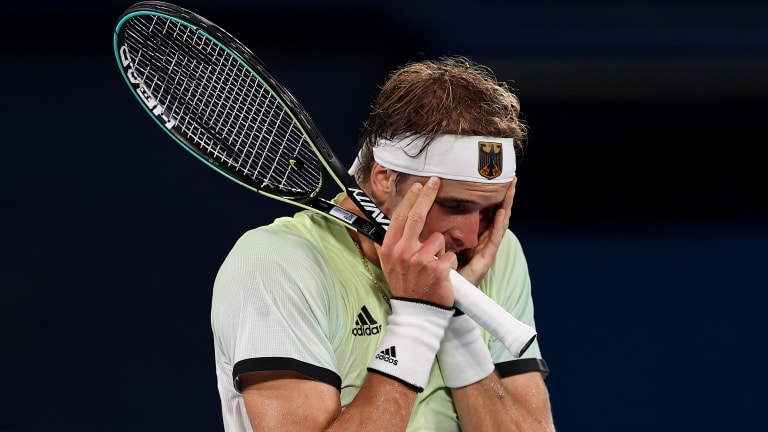Olympic Tournament
Novak Djokovic's Golden Slam hopes dashed by Alexander Zverev in stunning semifinal turnaround at Olympics
By Jul 30, 2021Olympic Tournament
How Novak Djokovic’s Olympic run triggered memories of his fellow Golden Slam winner, Serena Williams
By Aug 10, 2024Olympic Tournament
11-9, again: With Dan Evans, Andy Murray saves more match points, keeps career alive at Olympics
By Jul 30, 2024Olympic Tournament
Carlos Alcaraz, Rafael Nadal clinch second victory in Paris Olympics men’s doubles
By Jul 30, 2024Olympic Tournament
"Cheated" Coco Gauff loses cool at Olympics, exits to Donna Vekic in Paris
By Jul 30, 2024Olympic Tournament
Rafael Nadal aims to level head-to-head with Novak Djokovic at Paris Olympics on Monday
By Jul 28, 2024Olympic Tournament
Rafael Nadal and Novak Djokovic to clash in second-round blockbuster at Paris Olympics
By Jul 28, 2024Olympic Tournament
Tennis guide: who is playing the 2024 Paris Olympics at Roland Garros?
By Jul 04, 2024Olympic Tournament
Alex de Minaur, Ajla Tomljanovic to lead Australia's tennis team to Paris Olympics
By Jun 26, 2024Olympic Tournament
Novak Djokovic is confirmed for Paris Games, Serbian Olympic Committee says
By Jun 18, 2024Olympic Tournament
Novak Djokovic's Golden Slam hopes dashed by Alexander Zverev in stunning semifinal turnaround at Olympics
The German trailed by a set and a break before winning eight consecutive games in a 1-6, 6-3, 6-1 triumph. The Serbian would go on to lose in the mixed doubles semis, as well.
Published Jul 30, 2021
Advertising
Advertising

Novak Djokovic seemed all but into the gold-medal match before things took a stunning turn in Tokyo.
© AFP via Getty Images
Advertising

Forehands, backhands and serves: Alexander Zverev rocketed them all in one of the best stretches of tennis he's ever played.
© AFP via Getty Images
Advertising

"It's one of the biggest achievements in my career," Zverev said after his medal-clinching win.
© Getty Images